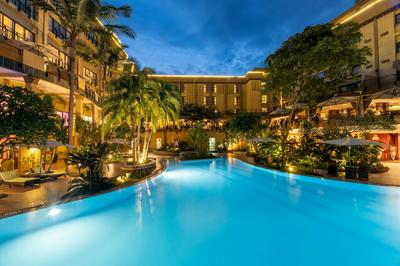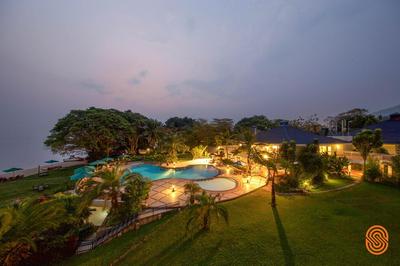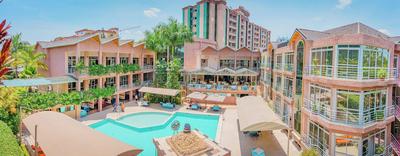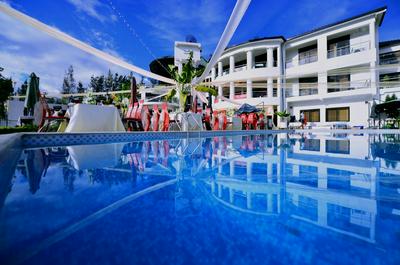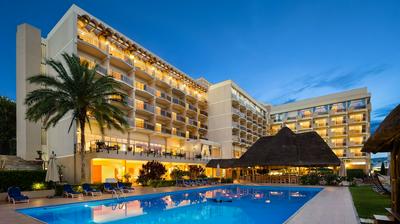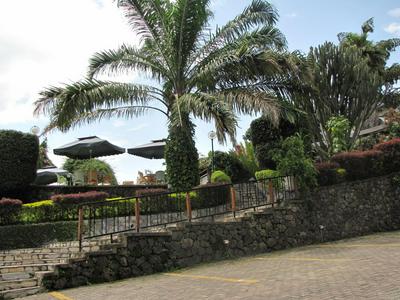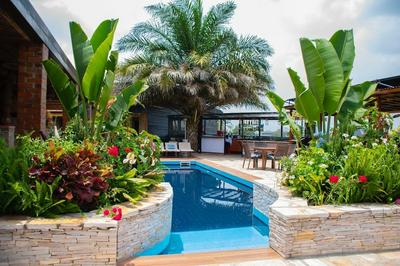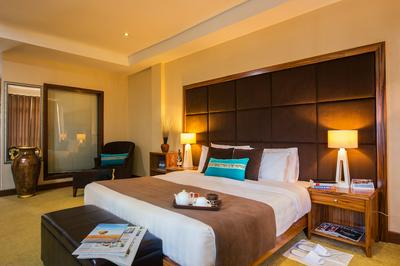When to visit Rwanda during the year?
Rwanda's climate is influenced by its elevation and proximity to the equator, resulting in a temperate climate throughout the year. The main tourist seasons align with the dry periods, typically from June to September and December to February, making these months the most visited times. During these months, tourists flock to see the majestic mountain gorillas in Volcanoes National Park and explore the lush landscapes of Nyungwe Forest. The wet seasons from March to May and October to November can be less crowded but offer beautiful scenery and birdwatching opportunities. Interestingly, Rwanda has an average temperature ranging from 15°C to 25°C, with slightly cooler conditions in the mountainous areas.
How to get to Rwanda?
Reaching Rwanda is fairly straightforward, thanks to its growing infrastructure and accessibility. The main entry point is Kigali International Airport (KGL), which connects the country to major cities across Africa and beyond. Buses and car rentals are great options for getting around once you arrive, enabling easy access to the stunning landscapes and attractions Rwanda has to offer.
- Main airlines include RwandAir, Kenya Airways, Ethiopian Airlines, British Airways, and Air France, linking Rwanda to cities like London, New York, Nairobi, and Johannesburg.
- Low-cost options: RwandAir often offers competitive fares for regional flights.
- Flight times vary; for instance, it's about 8 hours from London to Kigali, and around 4 hours from Nairobi.
- Main bus station in Kigali, well-connected to cities like Kampala (Uganda) and Bujumbura (Burundi).
- Popular routes include Kigali to Butare and Ruhengeri.
- Currently, there is no direct international train service to Rwanda; however, there are ongoing discussions about improving rail connections.
- Domestic train services primarily serve cargo transport.
- Main highways: The Kigali-Gatuna road connects Rwanda to Uganda, and the Kigali-Bujumbura road connects to Burundi.
- Distances vary; it's about 400 km from Kigali to Gisenyi.
- Road conditions are generally good, though some rural areas may have challenges.
Tourist activities in Rwanda
Rwanda is a treasure trove of diverse activities suited for nature lovers, adventure seekers, and culture enthusiasts alike. Start your journey with a trek into the Volcanoes National Park to visit the endangered mountain gorillas, a highlight of any trip to Rwanda. Beyond gorilla trekking, thrill-seekers can embark on hikes in the Nyungwe Forest, home to diverse primate species and beautiful trails. Birdwatchers will find this rainforest a paradise, with over 300 bird species to spot.
In cities like Kigali, delve into the rich history of Rwanda at the Kigali Genocide Memorial, which offers a poignant reflection on the country’s past. The vibrant local markets showcase Rwandan art and handicrafts, providing a perfect opportunity to purchase unique souvenirs.
For those looking for leisure, Lake Kivu is ideal for relaxation, offering scenic boat rides and beautiful beaches. Don't miss the chance to explore local culture, perhaps by participating in a traditional dance or sampling local coffee. Each region of Rwanda provides a unique array of activities that highlight its natural beauty and cultural richness.
Accommodation in Rwanda
Rwanda offers a range of accommodation options, catering to all budget types. In Kigali, you can find upscale hotels like the Kigali Serena Hotel, providing excellent service and amenities, with average prices around $150-$250 per night. For budget travelers, there are numerous guesthouses and affordable hotels, with prices starting as low as $30 per night.
Outside the capital, locations near national parks feature more specialized lodges. For instance, in Volcanoes National Park, eco-lodges like the Bisate Lodge serve nature enthusiasts looking for comfort while remaining close to nature. Prices in these lodges can range from $200 to $1,000 per night depending on the level of luxury and the season.
Staying in a local guesthouse can offer a more authentic experience, typically costing around $20-$50 per night. Overall, there are options that meet the needs of every traveler, from luxury seekers to budget-conscious adventurers.
Food in Rwanda
The cuisine in Rwanda is a blend of flavors influenced by cultural traditions and local ingredients. Staples include 'ugali' (a stiff porridge made from maize flour), beans, and plantains. Notably, a dish called 'isombe,' made with cassava leaves and groundnuts, is a must-try. Meat lovers can indulge in local favorites such as grilled goat meat or 'brochettes,' often served with a spicy sauce.
For beverages, Rwanda is renowned for its coffee, known for its rich flavor and quality. Don't miss trying 'ikivuguto,' a traditional fermented milk drink. Most restaurants in Kigali serve a mix of local and international dishes at reasonable prices, with a meal generally costing between $5 to $15. For those looking for local cuisine, visiting a traditional eatery will provide an authentic taste of Rwandan culture.
Important numbers and information
- Emergency Services: Police - 112, Ambulance - 912, Fire Brigade - 111
- Embassy Contacts: U.S. Embassy, 100 Avenue des Parentés, Kiyovu, Kigali
- Kigali International Airport: KGL, addresses are typically available through travel resources and GPS.
- Currency: Rwandan Franc (RWF). Payment methods include credit cards and mobile money services like MTN Mobile Money.
- Visa/Passport Regime: Visa required for most travelers; check specific requirements based on citizenship.
What to see in Rwanda?
Rwanda is famed for its picturesque landscapes and historical significance. Kigali, the capital, offers enriching visits to the Kigali Genocide Memorial and local markets bustling with Rwandan culture and handicrafts. Another key highlight is Volcanoes National Park, not only for its gorillas but also for stunning hikes providing breathtaking views of the Virunga Mountains.
In the south, Nyungwe National Park entices visitors with its rich biodiversity, featuring ancient trees and various primates, making it ideal for trekking and birdwatching. Lake Kivu, a picturesque freshwater lake, provides both relaxation and adventure opportunities like kayaking and boat tours.
Travelers should make time for the cultural experiences at the King’s Palace Museum in Nyanza, which delves into Rwanda’s royal history and traditions. Each of these attractions exemplifies the depth and beauty of Rwanda, making it a unique travel destination.
History, geography and climate
Rwanda, known as the 'Land of a Thousand Hills,' has a deep and varied history. It has seen periods of pre-colonial rule, colonization by Germany and Belgium, and the tragic genocide of 1994. Post-genocide, the country has worked towards reconciliation and growth, emerging as one of Africa's most stable nations. Geographically, Rwanda sits in East-Central Africa and features a mix of savannahs, hills, and lakes, contributing to its stunning scenery.
The climate is generally temperate, with two rainy seasons and average temperatures ranging from 15°C to 25°C. This moderate climate, combined with the lush landscapes, makes Rwanda a year-round destination for both tourists and locals alike.
Population and culture
Rwanda has a population of approximately 13 million people, with the majority identifying as Hutu, alongside minority Tutsi and Twa communities. The official languages are Kinyarwanda, French, and English, reflecting the nation’s colonial history and cultural integration.
The predominant religion is Christianity, with cultural traditions steeped in music, dance, and community gatherings. Festivals such as Umuganda promote community service and are held on the last Saturday of each month. Unique cultural aspects include traditional storytelling and craftsmanship in pottery and weaving. Understanding these elements provides a deeper appreciation of Rwanda's vibrant culture.

